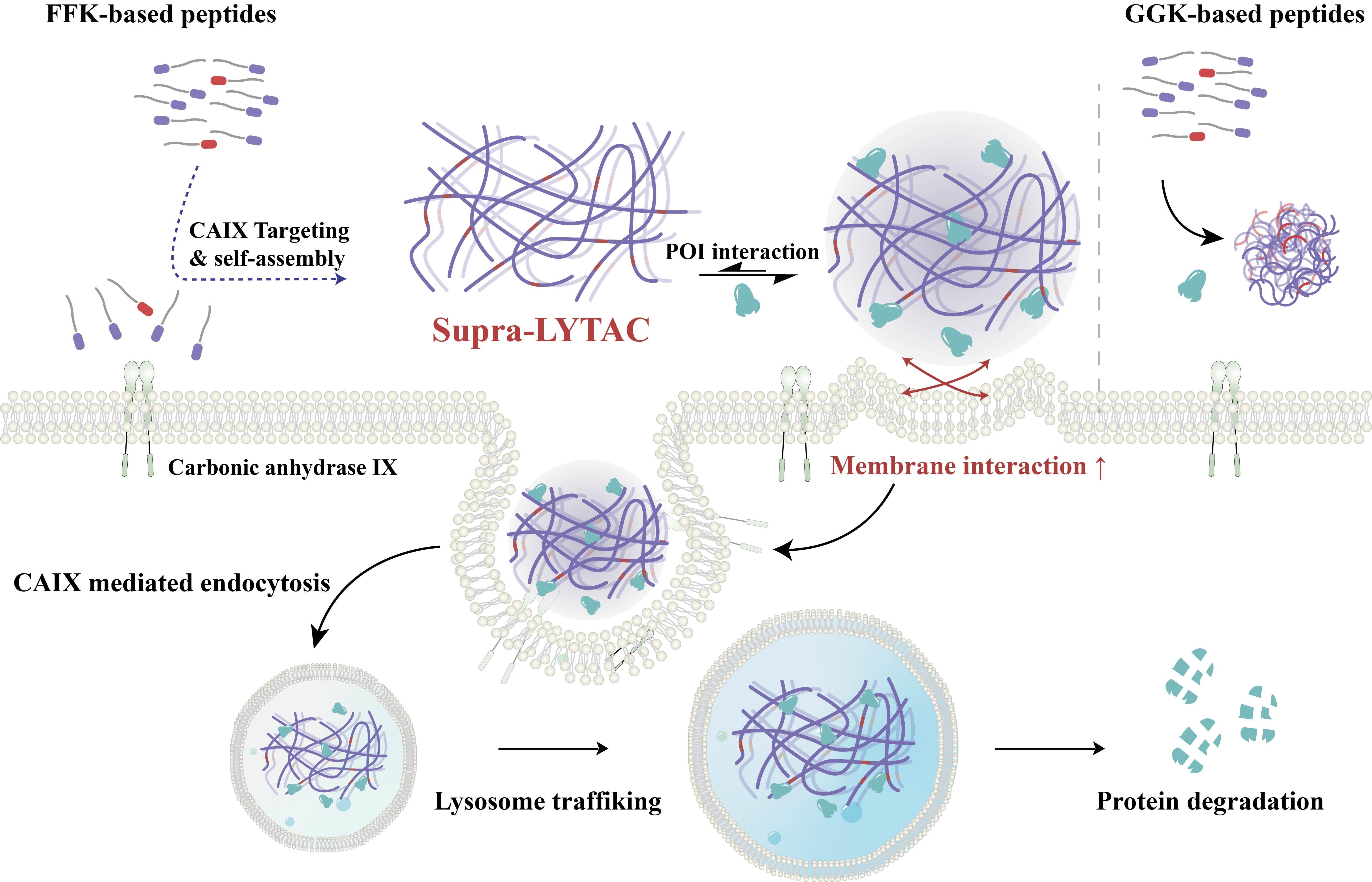
This is the procedure for forming a nano protein complex and protein decomposition in the human body. (Ulsan National Institute of Science and Technology)
By Lee Dasom
A research team has developed a technology to boost cancer treatment effectiveness by removing a protein used by cancer cells to avoid attacks from the body's immune system.
Ulsan National Institute of Science and Technology (UNIST) on April 23 said it developed a complex assembly technology for decomposing the PD-L1 protein of cancer cells.
PD-L1 sends a signal to immune cells not to attack cancer cells, something that allows the latter to multiply quickly. Cancer cells have much larger quantities of this protein than other normal cells and display it on their surface.
Thus the UNIST team created a technology using acetazolamide to selectively decompose PD-L1 only in cancer cells.
Acetazolamide, a medicine that attaches to the CAIX enzyme spreads on the surface of cancer cells to form a protein nanocomplex, capture PD-L1 and bring it into a cell. The nanocomplex is considered an abnormal protein and decomposes in lysosome, which is like a cleaning plant inside a cell.
This reaction takes place only in cancer cells because the CAIX enzyme is nearly absent in normal cells.
Cancer cells that have lost PD-L1 are targeted for attack by immune cells. In tests using mice, the complex reduced the size of cancer cells by over half and greatly reduced the presence of PD-L1.
UNIST professor of chemistry Ryu Ja-Hyoung, who led the study, said "We will use this technology along with immunotherapy or apply it to the treatment of intractable solid cancers."
dlektha0319@korea.kr
